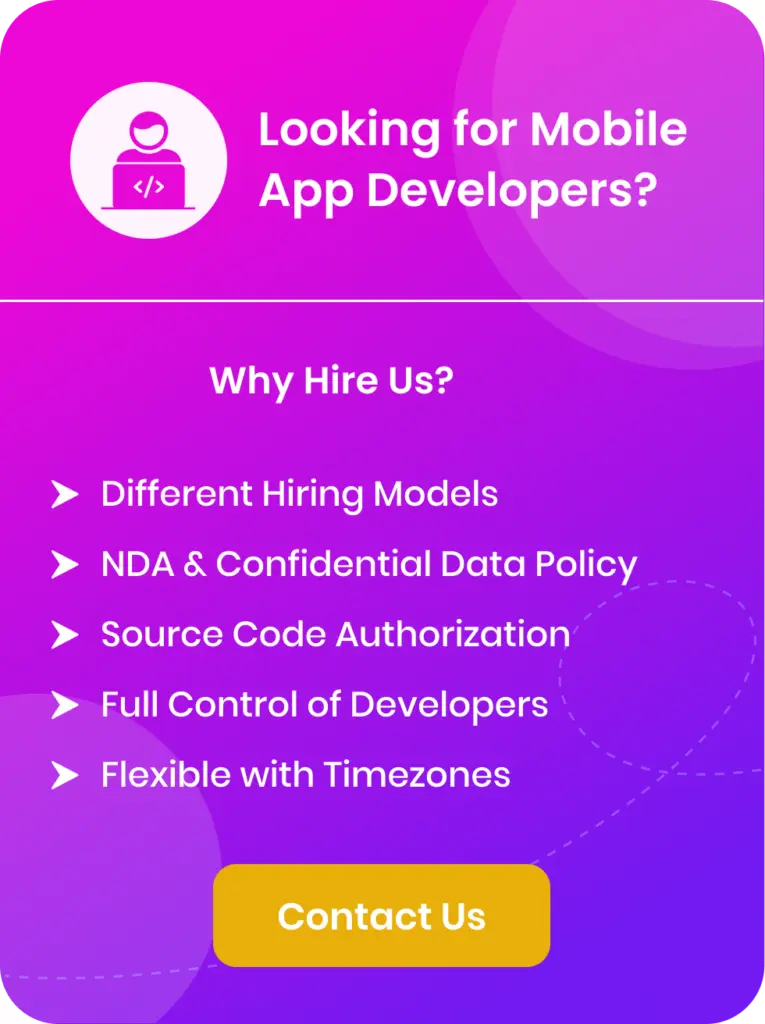In the modern world of digital technology web-based applications are now an integral aspect of our lives. Be it online shopping, social media, online shopping and productivity apps, these web applications are the foundation of our online experience. But the conventional method of developing web apps has limitations, like lengthy loading time, insufficient offline functionality, and insufficient user experience when using mobile phones. This is the point at which Progressive Web Apps (PWAs) are a game changer, transforming web development, and providing many important benefits and features that make the difference between traditional web applications and native mobile applications.
Understanding Progressive Web Apps (PWAs)
The Progressive Web App (PWA) is a web-based application that makes use of the latest web technologies to offer users with a user experience comparable to those of native mobile apps. PWAs are a combination of the best features of both two worlds accessibility and reach of the web, and the performance and capabilities of native applications. They were first made available by Google in the year 2015, but they have since gained favorability in all of the developers working on web applications because of their many advantages.
PWAs are made to be reliable, responsive and enjoyable, and they make use of features like service workers caching, asynchronous design to provide seamless experiences across different platforms and network conditions. Let’s explore the main features and benefits that come with Progressive Web Apps.
Key Features of Progressive Web Apps
1. Responsive Design
PWAs are developed using responsive design principles ensuring they adjust to various sizes and orientations of screens. No matter if you use them on a desktop or tablet PWAs deliver the same user-friendly experience.
2. Offline Functionality
One of the best advantages of PWAs is the ability to function offline or under situations with no internet access. This is enabled by service workers which are scripts that run in the background and can store important resources and allow the app to work regardless of whether the gadget isn’t online.
3. App-Like User Experience
PWAs are designed to resemble the design and layout of native mobile applications. They can be integrated into the home screen of the user, with a similar structure for navigation and even push notifications to increase the engagement of users and their retention.
4. Secure
PWAs are delivered via HTTPS, which ensures data security and securing user data from possible dangers. The security features are crucial particularly for applications that deal with sensitive information and financial transactions.
5. Cross-Browser Compatibility
PWAs can be used with all current web browsers which makes PWAs accessible to large population without having to require the users download or install particular plugins or software.
6. Faster Loading Times
Because of the caching process and optimization of loading, websites load faster increasing bounce rates and giving users a better user experience. This is particularly important for mobile devices, as users are not able to endure slow loading websites.
7. Discoverability
PWAs are easily found through search engines, which makes them easy for users to locate and use. This is different from native apps that need users to visit an app store to download the app.
8. Automatic Updates
PWAs are always current, since they are automatically updated by the service worker running in the background. Users don’t have to be concerned about manually updating the application for the latest features, security updates or other patches.
9. Reduced Data Usage
PWAs are effective when it comes to data usage since they are able to store resources and eliminate the necessity of downloading large files in a series of downloads. This is especially beneficial in areas that have limited connectivity to data.
10. Accessibility
Developers can incorporate accessibility features much more easily into PWAs and ensure that they can be used for people who are disabled. This accessibility is an essential element of modern web development.
Benefits of Progressive Web Apps
1. Improved User Engagement
PWAs can provide features such as push notifications, as well as home screen installations, which improve user interaction. Users are more likely to engage with and revisit the app with these options, which in turn benefit companies and organizations.
2. Cost-Effective Development
As opposed to creating distinct native applications for different operating systems (iOS, Android, etc. ) PWAs are less expensive. They make use of a single codebase which can be used on a variety of operating systems and devices which saves cash and time.
3. Broader Audience Reach
Because PWAs can be accessed via the web, it means they are able to have a greater reach without the limitations of app stores. This is especially advantageous for companies that target areas with less smartphones.
4. Improved SEO Ranking
PWAs can be found through search engines thereby increasing their SEO rankings and visibility. This means that people have a higher chance to find your site by searching organically.
5. Reduced App Churn
App churn refers to the frequency of users removing or ceasing using an application and is lower in PWAs than native apps. People are less likely to remove the PWA because they don’t use the space of their devices.
6. Enhanced Performance
PWAs utilize the latest web technologies to provide high-performance. They load fast and respond to user input efficiently, and offer an effortless experience. All of these can contribute to the satisfaction of users.
7. Lower Barrier to Entry
For the user, there’s less of a barrier to entry for users using PWAs. They don’t have to undergo the installation process, which usually requires permissions to be granted and the use of the device’s storage. This ease of use encourages users to test out PWAs faster.
8. Data Security
Security of data is the major concern in PWAs using the usage of HTTPS encryption as well as various other measures to protect your data. This builds trust among users which makes them more comfortable sharing their personal data and conducting transactions inside the application.
9. Easier Maintenance
Maintaining the operation of a PWA is easier than managing multiple native applications since updates can be delivered automatically. This makes sure that all users are updated with the latest security patches and features.
10. Cross-Platform Compatibility
PWAs are compatible with different platforms and devices, which reduces the requirement to create and maintain separate applications for every platform. This reduces maintenance and development tasks.
Real-World Examples of PWAs
To better understand the significance and impact Progressive Web Apps, let’s look at some real-world examples:
1. Twitter Lite
Twitter Lite is a PWA that provides a simplified version of Twitter application that is optimized for users who have limited connectivity to data. It is quick to load, allows offline access and uses a small amount of storage space.
2. Flipkart
Flipkart, one of the biggest Indian online marketplaces, has embraced PWA technology to enhance their online shopping experience for mobile users. Their PWA offers fast loading times as well as a user-friendly interface increasing interaction and conversions.
3. Starbucks
Starbucks introduced the PWA to improve the rewards experience for program members. The PWA lets users buy and pay for beverages, earn rewards and locate nearby shops and more, all through the convenience of their smartphones.
4. Pinterest
Pinterest’s PWA is a visually attractive and responsive experience. It makes it simple for users to find the best content, save and share content. The PWA is fast to load even with slower connections to networks.
Challenges and Considerations
Although Progressive Web Apps offer numerous benefits, they’re not without challenges or concerns:
1. Limited Device Access
Certain features that are specific to devices for example, access to specific sensors (e.g. the gyroscope, accelerometer) can be restricted when using PWAs, compared to native applications.
2. iOS Limitations
Its iOS ecosystem has been historically less tolerant of PWAs in comparison to Android. Although iOS has made strides in allowing PWA functions, there might be some restrictions for PWA developers aiming at iOS users.
3. Browser Support
Although PWAs can be used by the majority of modern browsers, older or less widely used browsers might not offer the same capabilities. Developers should think about their intended user and make sure that they are compatible.
4. Increased Development Complexity
The development of a PWA requires the developers to get themselves with the latest methods and technologies like caching strategies and service workers. This could increase the complexity of development when compared with conventional web design.
5. User Awareness
The users might not be aware of PWAs and would not be able to immediately appreciate their advantages. Informing users of the benefits of PWAs and convincing users to download or bookmark the application on their home screens can be a difficult task.
Conclusion
Progressive Web Apps represent a major leap forward in web development. They offer numerous essential features and benefits that improve the experience of users and help companies and other organizations. With their capability to operate offline, deliver an app-like experience, and connect with an entire public, PWAs have become an important tool in the current digital world.
Although there are challenges and concerns however, the benefits of PWAs include improved user engagement, low-cost development, and wider reach to the public are a compelling choice for companies looking to offer users with a seamless and user-friendly online experience. As the technology of the web continues to advance, Progressive Web Apps are likely to play a significant part in determining what the web will look like in the near future.


